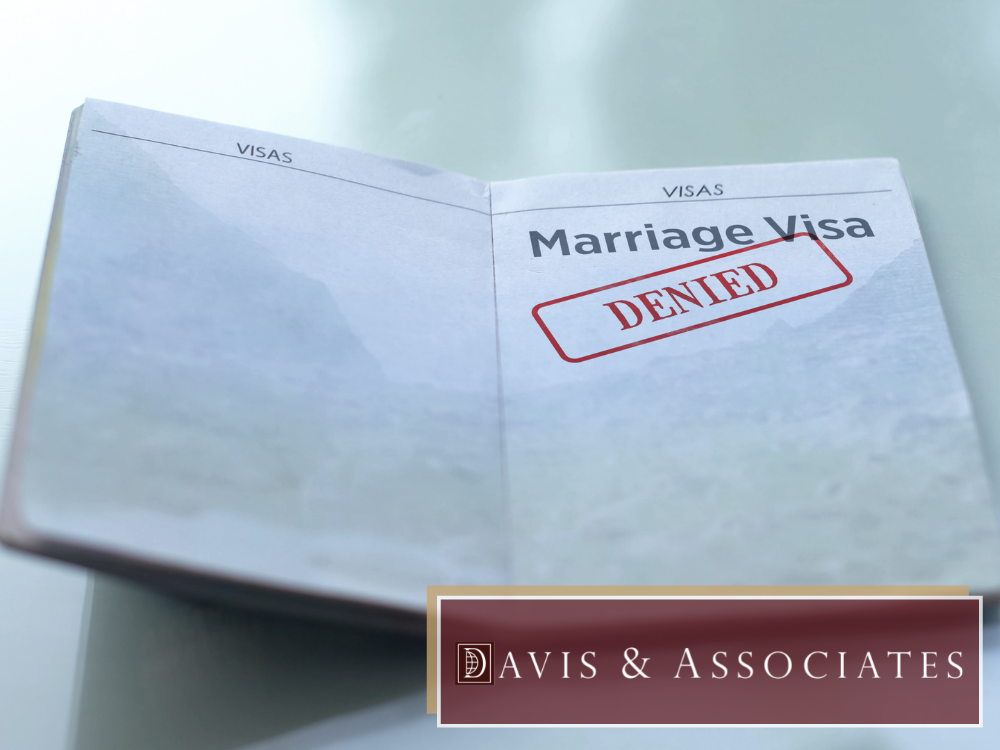
Why Would My Green Card Application Be Denied?
If you’re like many people who have applied for a green card in the United States, your worst fear is that your green card application will be denied. Unfortunately, U.S. Citizenship and Immigration Services (USCIS) often denies green card applications for a variety of reasons, which this guide explains. (But don’t worry – we give you the pointers you need to avoid denial wherever possible.)
The 5 Biggest Reasons Your Green Card Application May Be Denied
Though there are myriad reasons a green card application could be denied, these are some of the most common:
- Failure to meet application requirements
- Criminal records
- Security concerns
- Health reasons
- Previous immigration law violations
Here’s a closer look at each.
Reason #1 Green Card Applications Are Denied: Failure to Meet Application Requirements
You must qualify to apply for a green card in the United States. If you don’t qualify, USCIS will deny your petition. Additionally, you must meet application requirements, and that includes submitting or bringing in forms, documents and fees. Many people make the mistake of failing to read instructions during the application process, as well as leaving out certain documentation that could help USCIS make a favorable decision in their case.
Though every case is different, you’ll most likely need to provide original or copied documents such as your birth record, marriage certificate, and proof of your visa status. Some people need to provide different documentation; it’s all determined on a case by case basis.
Reason #2 Green Card Applications Are Denied: Criminal Records
Having a criminal record doesn’t automatically disqualify you from getting a green card. However, some criminal records are disqualifying. If you’ve been convicted of certain types of crimes, USCIS may deny your petition outright. The most common crimes that lead to green card application denial include those involving drug trafficking, money laundering, fraud, and sex crimes. However, even more minor crimes, particularly when you have an established pattern of committing those crimes, can lead to denial of your green card application.
During the application process, you’re required to answer a series of questions that revolve around your criminal history. You must answer these questions truthfully, but you do have an opportunity to provide an explanation; that means (generally speaking) that having a minor criminal record doesn’t automatically disqualify you from getting a green card in the United States. Naturally, if you lie on your application documents, USCIS will find out and will deny your green card application.
Related: Can I get a green card with a criminal record?
Reason #3 Green Card Applications Are Denied: Security Concerns
You don’t have to be a perfect person to get a green card in the United States. However, you can’t pose a security risk to the country, either. If you’ve been involved in terrorist efforts, or intend to become involved in terrorist efforts, there’s a good chance USCIS will deny your green card petition. Additionally, you cannot engage in espionage, sabotage, or any activity with the intent of overthrowing the United States government. If you have any of these types of activities in your past, you most likely pose a security concern and may be denied a green card.
Reason #4 Green Card Applications Are Denied: Health Reasons
Nearly every immigrant needs to undergo a medical exam to be admitted as a lawful permanent resident of the United States. These exams are performed by government-approved physicians, and the results may lead to green card denial. For example, if you have a communicable disease that is dangerous to the public, or if you fail to provide proof that you’ve had the required vaccinations to enter the United States (or refuse to get them before your green card is approved), USCIS may deny your application. Additionally, if you are a drug addict or have a physical or mental illness that’s a threat to yourself or others, you may not get a green card.
Related: What you need to know about the COVID vaccine and permanent residence
Reason #5 Green Card Applications Are Denied: Previous Immigration Law Violations
For the most part, people who have entered the United States unlawfully are ineligible for a green card. If you have a history of immigration law violations, the U.S. government may automatically deny your petition.
 What Can You Do if Your Green Card Application is Denied?
What Can You Do if Your Green Card Application is Denied?
USCIS sometimes returns unfavorable immigration decisions such as green card denials. If your green card application was denied, you have a few options. You may choose to correct the mistakes you made on your forms (if appropriate) and try to apply again, or you may choose to file an appeal or motion to reopen your case.
Correcting Mistakes and Trying Again
If you made fundamental mistakes on your green card application, you may be able to correct those mistakes and try again. However, this doesn’t apply if you lied on your petition. Because refiling your petition can be complicated, it’s typically best to work with an immigration attorney who understands U.S. immigration law thoroughly.
Related: How to find your loved one after they’re detained by immigration officials
Filing an Appeal or Motion to Reopen Your Green Card Petition
If you were denied after filing for your green card within the United States, you may be eligible to appeal or file a motion to reopen your green card case. However, your appeal must be filed within 30 days of the notification of the decision (you have 33 days if you received your notification by mail).
If you filed for permanent residence through a U.S. consulate abroad and your immigrant visa was denied, you may ask the principal consular officer at the post where you interviewed to review your case. The officer has the option to get a second opinion from the U.S. State Department. If the denial is upheld, you may not appeal.
Related: What are immigration lawyer fees?
How to Avoid Green Card Application Denials
These are the simplest ways to avoid a green card application denial:
- Be meticulous with your paperwork
- Provide supporting documentation
- Make sure you meet all application conditions and requirements
- Work with an attorney
Avoiding Administrative Errors
Many people choose to work with an immigration attorney to help avoid administrative errors. Because a simple mistake can cause your petition to be kicked back or rejected, it’s important that you’re very careful when filling out green card petition forms.
 Supporting Documentation for a Green Card Application
Supporting Documentation for a Green Card Application
Make sure you have all the supporting documentation necessary for your green card application before you submit it. You may need things like your birth certificate, your marriage certificate, adoption paperwork or proof that you are engaged in a bona fide marriage.
Related: Guide to adjustment of status in U.S. immigration
Meeting Application Requirements
Make sure you meet all the application requirements before filing your petition with USCIS. For example, if you apply for a green card before you’re technically eligible to do so, USCIS will reject your petition. Additionally, you need to ensure that you have the appropriate documentation that proves you meet application requirements before you apply.
Do You Need to Work With an Immigration Attorney to Put in a Green Card Application?
If you’re thinking about applying for a green card in the United states, you should consult with an attorney before doing so. We offer free consultations and can give you the legal advice you need to begin moving forward in the right direction, so call our office today.
